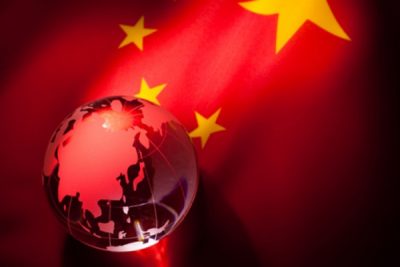China’s Dream of Hegemony?

On 30 May, United States Admiral Harry Harris, slated to become the next US ambassador to South Korea, said: “China remains our biggest long-term challenge. Without focused involvement and engagement by the United States and our allies and partners China will realize its dream of hegemony in Asia.”
This is starkly at odds with how Chinese leaders describe the Chinese Dream. Chinese chairman Xi Jinping explained:
… the Chinese Dream of the rejuvenation of the Chinese nation means that we will make China prosperous and strong, rejuvenate the nation, and bring happiness to the Chinese people. [1]
Xi averred that it is through the cause of Chinese socialism – whose core values are prosperity, democracy, civility, harmony, freedom, equality, justice, the rule of law, patriotism, dedication, integrity and friendliness – that the Chinese Dream will be attained. [2]
And the Chinese Dream is not exclusively for the benefit of Chinese people. Xi spoke of cooperation with other countries “on the path to realizing the great dream of development and prosperity.” [3]
To realize the Chinese Dream… We will both on China’s development and on our responsibilities and contributions to the world as a whole. We will bring benefits to the Chinese people and the rest of the world. The realization of the Chinese Dream will bring the world peace, not turmoil, opportunities, not threats. [4]
Admiral Harris presents a strictly militarist perspective. This is the perspective of a person who views the world in Manichean terms: ally or enemy.
That China is participating in the capitalist market-economy and performing far more spectacularly than the US is no reason to call China a hegemonic aspirant. [5]
Yet Harris’ opinions came on the heels of US warships entering the waters around Chinese-claimed territory in the South China Sea. [6]
The US frequently sends its warships through the region on so-called freedom of navigation patrols, and when the navigation steers provocatively near to islands/islets claimed by China, it causes consternation in Beijing. China abides by freedom of passage through the South China Sea, but as UNCLOS states such passage must be innocent. This should be understandable in Washington because it seems certain how the US would react to Chinese warships sailing through the Straits of Florida. [7]
Chinese Foreign Ministry spokeswoman Hua Chunying said admiral Harris was “obsessed with hegemony,” fearful that others might try to usurp it from the US.
In his book, The Governance of China, chairman Xi Jinping seven times mentions the Chinese aversion to hegemony. Among them:
- We stand for peaceful resolution of all disputes, oppose all forms of hegemony and power politics, and never seek hegemonism nor engage in expansion. (location 594)
- China has stood up. It will never again be bullied by any nation. Yet it will never follow in the footsteps of big powers, which seek hegemony once they grow strong. Our country is following a path of peaceful development. (loc 2675)
- And we have made a solemn pledge to the whole world that we will never seek hegemony or commit any act of expansion… (loc 3664)
- China does not subscribe to the outdated logic that a country will invariably seek hegemony when it grows strong. Are colonialism and hegemony viable today? Absolutely not. (loc 3956)
- China would stick to a path of peaceable development, a mutually beneficial strategy and opening up, and the pledge of never seeking hegemony. China would pass its commitment from generation to generation. (loc 6490)
Given the words of the to-be US ambassador to South Korea, one can only assume that the Harris is either ignorant or he is implying that Xi is a liar. Hardly an auspicious start for a job posting that obviously calls for diplomatic skills.
Even if there is substance to what Harris states, it would at best be a case of the pot calling the kettle black.
Does China have the equivalent of a Monroe Doctrine (by which the US has granted itself preeminence — also referred to as hegemony — in the western hemisphere)? Are Chinese troops warring in Africa? Is China supporting a coup government in Honduras? Is China pursuing “regime change” in Venezuela? In Syria? Is China supporting the oppression and slaughter of Palestinians by Israeli Jews? Does Xi Jinping threaten North Korea with genocide? Has China ringed countries around the world with Chinese military bases?
If China does not engage in such imperialistic acts, then who is actually acting a like a hegemon?
*
Kim Petersen is a former co-editor of the Dissident Voice newsletter. He can be reached at: [email protected]. Twitter: @kimpetersen. He is a frequent contributor to Global Research.
Notes
1. Xi Jinping, “The Chinese Dream” in The Governance of China (Beijing: Foreign Languages Press, 2014).
2. Xi Jinping, “The Chinese Dream.”
3. Xi Jinping, “The Chinese Dream.”
4. Xi Jinping, “The Chinese Dream.”
5. I already addressed the topic of China as a hegemon, but Harris’ comments call for reply.
6. Curtis Stone, “Washington provokes Beijing in the South China Sea at its own peril,” People.cn, 28 May 2018.
7. For elaboration on the situation in the South China Sea, read “Who has Sovereignty in the South China Sea?”

